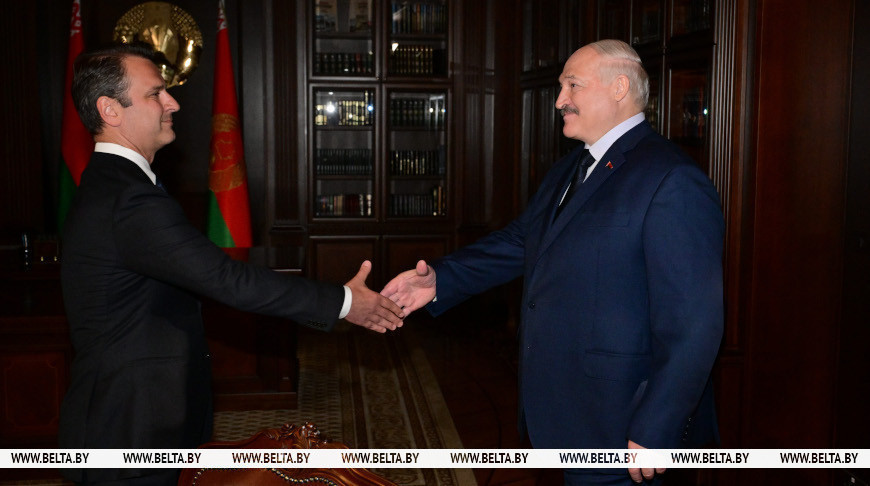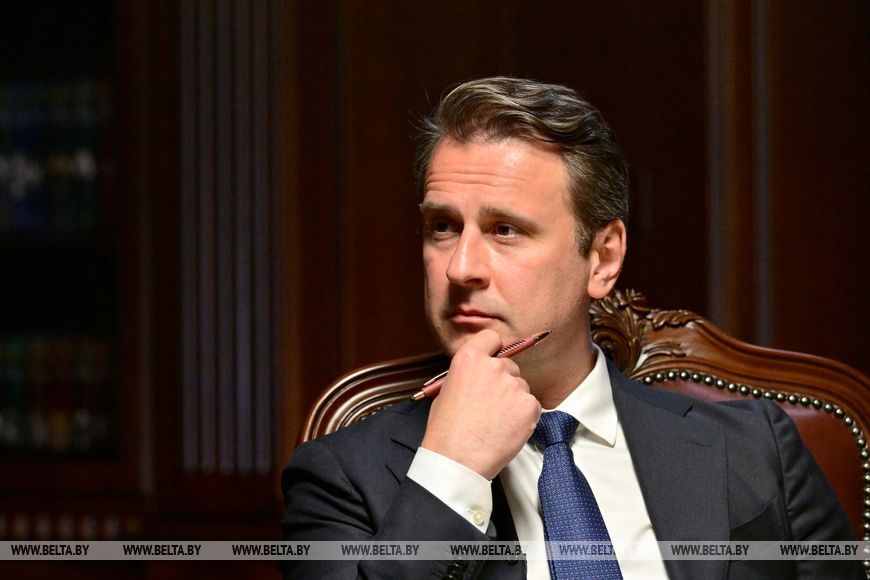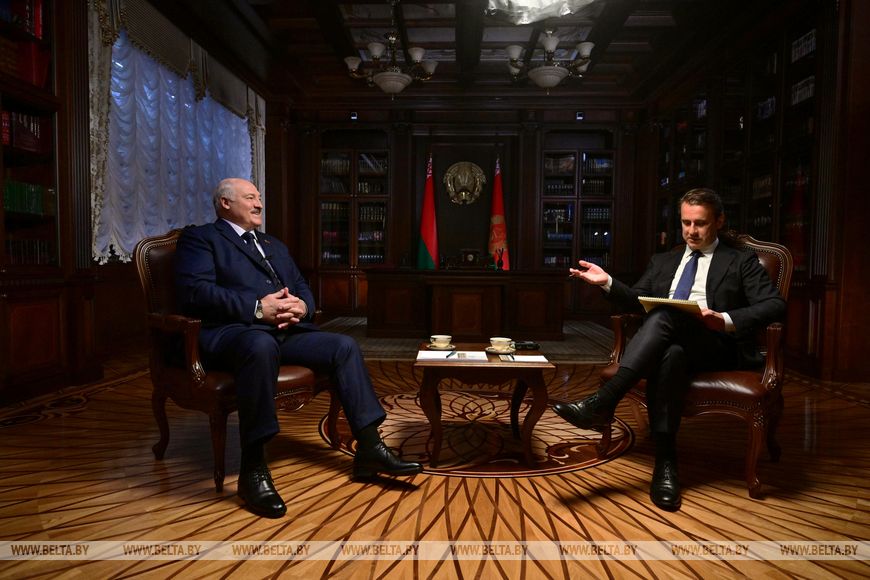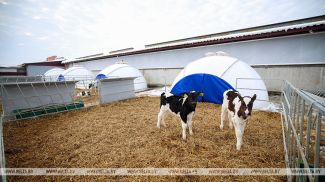
MINSK, 8 August (BelTA) - Belarusian President Aleksandr Lukashenko gave an interview to TIME Magazine on 25 July, BelTA has learned.
Correspondent Simon Shuster conducted the interview.
Neither the media outlet nor the interviewer's identity had been disclosed until now, per the magazine's request to maintain intrigue and exclusivity.
TIME is an American weekly magazine and digital news platform headquartered in New York. Currently reaching approximately 30 million readers worldwide, primarily in the United States, where it has repeatedly been recognized as the nation's most popular print publication. TIME ranks among the world's most influential and widely-read political magazines.
Simon Shuster is an American journalist who has been a correspondent for TIME Magazine since 2013. He was born in Moscow in 1983. His family moved to the United States in 1989.

In 2006, Simon Shuster returned to Moscow, where he worked as a journalist covering Russian politics and neighboring states for The Moscow Times, The Associated Press, Reuters, and TIME Magazine. After publishing his article ‘In Russia, Crime Without Punishment’ about the downing of Boeing 777 in Donetsk Oblast, Simon Shuster was banned from entering Russia. As a result, he relocated to Berlin, where he covered events in Europe and the post-Soviet space. In February 2020, he moved to New York. He is also known for his reporting on the situation in Ukraine.
As previously reported by Natalya Eismont, press secretary to the president of Belarus, Aleksandr Lukashenko spoke with the journalist for over two and a half hours.
“This was done in the format of a classic interview. Then the conversation continued off the record. So in total, it was an extremely frank three-hour conversation. Both candid and substantive,” she said.

The interview covered a wide range of key topics, including:
-Russia-Ukraine peace process: Aleksandr Lukashenko’s perspective and Belarus’ role;
-Belarus-USA negotiations: their initiation, progress, and the president’s expectations;
-multi-vector foreign policy: external perceptions, criticisms, and whether Russia expresses concern;
-Belarus’ active international engagement amid sanctions imposed by the USA and EU;
-the special military operation: detailed account of its outset;
-the Belarus-Russia military drillsZapad2025: objectives behind the adjusted plan;
-nuclear weapons and the Oreshnik missile system as strategic deterrents, including U.S. officials’ remarks to the president;
-national sovereignty and security: philosophical and practical approaches to these fundamental matters;
-Aleksandr Lukashenko’s potential new presidential term: prospects and his vision for a successor.












